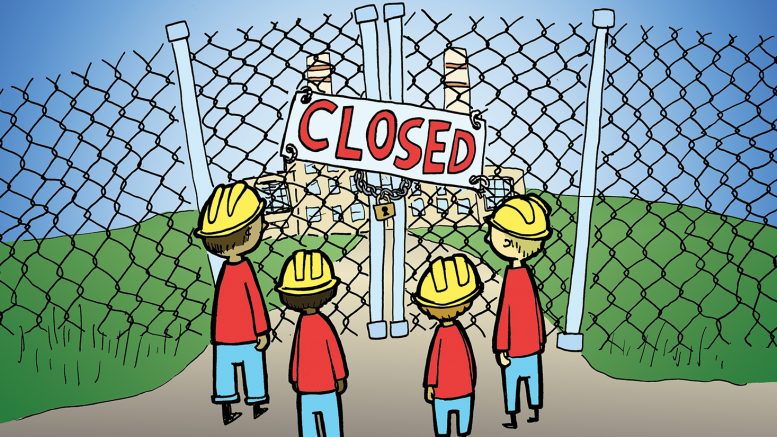The North American Free Trade Agreement (NAFTA) has long been failing to help the working classes of its three participating countries.
The agreement was negotiated in the early ’90s by Republican U.S. President George H.W. Bush, Conservative Canadian Prime Minister Brian Mulroney, and Mexican President Carlos Salinas de Gortari – passing into law in 1994 under Democratic President Bill Clinton – and received bipartisan support in the U.S. and Canada.
Since Canada and the U.S. had already worked out a bilateral agreement several years earlier, this agreement was most important for the addition of Mexico. Some of the goals of NAFTA were eliminating barriers to trade goods and services across national borders, and increasing investment opportunities between the countries.
Unfortunately, there were severe consequences that came along after its implementation.
At the time of the signing, the Canadian federal minimum wage was $4.00 an hour and American federal minimum wage was US $4.25 an hour. Wages for standard, general labour in Mexico was approximated at US $5 per day.
NAFTA’s effect was to force workers in Canada and the U.S. to compete with the starvation wages of workers in Mexico. And with many pre-existing trade barriers removed, it is no wonder Canadian and American companies packed their bags and moved their factories south.
A corporation has no morals: its entire existence is based on the ability to turn a profit. When it is made easier for a corporation to relocate to another jurisdiction to increase its bottom line, its directors will choose to do so – regardless of how many former workers it puts on the street.
Over the years, Canada has lost many manufacturing jobs due to Mexico’s inadequate wages. As recently as 2017, General Motors cut 625 auto assembly jobs at its factory in Ingersoll, Ont., and moved them to Mexico. The lack of tariffs and possibility of cheaper, outsourced labour are an invitation to corporations to abandon the regional economies they have been a part of for decades.
While NAFTA was still being negotiated in 1992, 40 per cent of corporate executives admitted they were likely to move some production to Mexico once the deal went through. And it played out exactly the way critics at the time had expected it would. In the two decades following the signing of NAFTA, the U.S. lost over 850,000 manufacturing jobs.
It’s obvious that these trade policies were tailored almost exclusively to line the pocket of large companies and their investors. As Justin Trudeau has hinted, NAFTA must be modernized and made progressive. This includes drafting specific provisions regarding equal gender pay, parental leave, labour protections, and environmental regulations.
These progressive policies would likely have the biggest impact on Mexico’s working class. Just like in Canada and the U.S., there is a huge disparity in gender pay – with female industrial supervisors making only 66.9 per cent what male supervisors make. Along with this, Mexico has horrific air pollution issues, with no measures to ensure corporate accountability. The country also has a history of repressing union activity.
These are extremely important dimensions of a trade deal if it is going to work for all sectors of a country. After having been left behind for the better part of the last two decades, the working classes of these nations must be addressed in a fair manner when discussing trade. For example, specific guidelines for compensation of employees must be collaboratively set and abided by. Environmental goals must also be agreed upon and set with the goal of reducing collective carbon footprints. No longer can we allow to for each nation to be free to do as it sees fit, eventually siding with big business on each issue.





